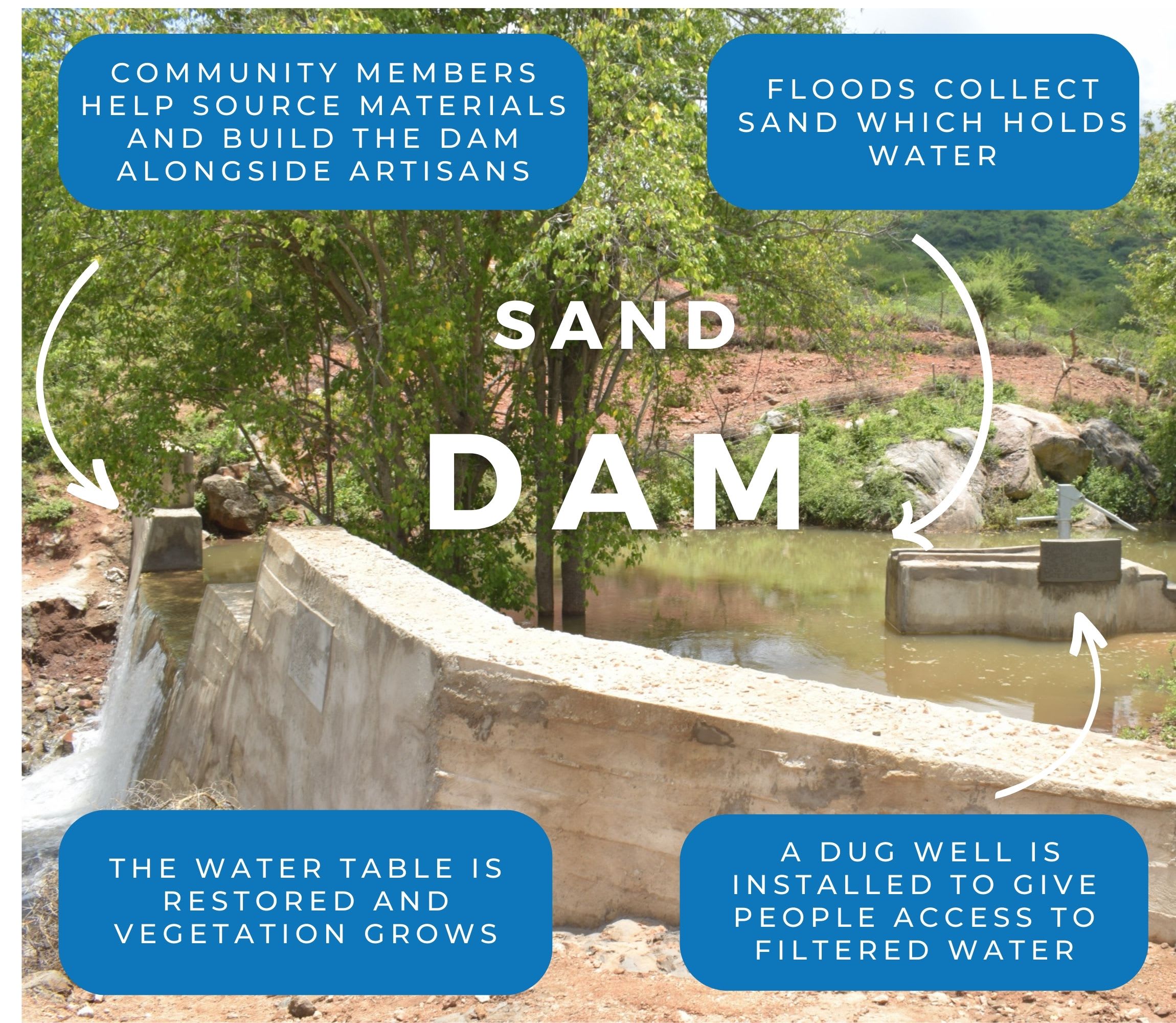Kaukuswi is found in a peaceful rural location. The majority of the 503 people here live in decent houses made of bricks and covered with iron sheets.
The community's proximity to Matiliku and Emali market centers has led to many people attending market days that are held on every Wednesday and Friday. Locals walk together to the market in a bid to maximize on the increased variety of choice and fresh produce. Local residents come together during burial ceremonies, welfare organization meetings, fundraising events, and weddings.
More than half of people say that they make a living from farming. Some others earn an income by running small businesses, working in nearby towns, or engaging in informal labor for construction projects.
The amount of time spent in search of water has derailed the development of this community.
The current water source is found on a sandy, seasonal river channel. People dig scoop holes into the sand to fetch water. The river is seasonal and runs dry at certain times of the year. This leaves community members at the mercy of unscrupulous business people who sell water at high prices, exploiting the locals.
"For many years we have suffered the challenge of clean water access in our locality. This has led to poor living conditions and low levels of cleanliness at household and personal levels," said Benjamin Musau.
The water points are always open and remain exposed to many contaminating agents. The channel is shared by both human beings and animals. The available water is in a poor state and not suitable for human use, but there's no other choice.
More than half of community members travel for more than two kilometers in their search for water, which makes the pursuit of water a major challenge for this group of people.
What we can do:
Our main entry point into Kaukuswi Community has been the Kwa Mung'oli Self-Help Group, which is comprised of 31 farming households that are working together to address water and food scarcity in their region. These members will be our hands and feet in both constructing water projects and spreading the message of good hygiene and sanitation to everyone.
Sand Dam
Erratic rainfall patterns in southeastern Kenya can't guarantee water for communities all year round as most rivers in the entire Makueni County are seasonal with only River Athi being perennial. Sand dams would therefore harvest rainwater where it falls and make it available to the community till the next rain season with community members utilizing the tapped water resources for a range of activities.
After the community picked the spot, our technical team went in and proved the viability by finding a good foundation of bedrock. Now, our engineers are busy drawing up the blueprints. We estimate the dam will be 81.3 meters long and 3.9 meters high.
We are unified with this community to address the water shortage. As more sand dams are built, the environment will continue to transform. As the sand dams mature and build up more sand, the water tables will rise. Along with these sand dams, hand-dug wells (check out the hand-dug well being installed next to this dam) will be installed to give locals a good, safe way to access that water.
With these projects, clean water will be brought closer to hundreds of people in Kaukuswi, Kenya.
Training
We will hold hygiene and sanitation training sessions with Kwa Mung'oli Self-Help Group, which are also open to non-members. These will teach about important hygiene practices and daily habits to establish in the community at the personal and household levels. Taking good care of self and environment will make for a healthy community.
Most households have latrines. The latrines we visited demonstrated average levels of cleanliness with a majority being cleaned using ash. None of the facilities visited had water for handwashing placed nearby for use after visiting. Improvements will be needed in having handwashing facilities, garbage pits and regular cleaning of the latrines.
We will hold training on effective water treatment methods, handwashing training, soap making lessons and knowledge of disease transmission routes. The members of this group seem to have little knowledge on hygiene and sanitation. This also exposes them to risks of contracting diseases such as cholera, typhoid, diarrhea and stomachaches.

 Sand Dam
Sand Dam
 Rehabilitation Project
Rehabilitation Project
































